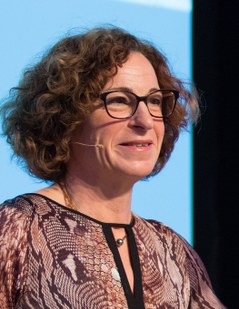Three main strands for Norway's Presidency of the Nordic Council of Ministers
“This is exciting,” state secretary Christl Kvam told the Nordic Labour Journal as she debuted at the Nordic ministers’ meeting as a representative for the upcoming Norwegian Presidency.
Nordic cooperation takes a new shape and enters new arenas. Secretary General of the Nordic Council of Ministers Dagfinn Høybråten presented several challenges around the theme. “New Nordics 2.0 – the Nordic region’s time is now” is one example of the ongoing reform work. On the recommendation of the Secretary General, the cooperation ministers agreed on 15 September “an ambitious reform package which will help increase the Nordic Council of Ministers’ relevance for the Nordic governments, business and civic society”.
 “All arenas have their own dynamics. I think part of the challenge of following up the Secretary General’s ambition to make this an interesting political arena for ministers might be to have more time to examine fewer issues but in a more thorough way,” suggest Christl Kvam.
“All arenas have their own dynamics. I think part of the challenge of following up the Secretary General’s ambition to make this an interesting political arena for ministers might be to have more time to examine fewer issues but in a more thorough way,” suggest Christl Kvam.
When Norway takes on the Presidency of the Nordic Council of Ministers in 2017, the Norwegian programme will follow three main strands: The Nordic region in transition, the Nordic region in Europe and the Nordic region in the world.
“When it comes to labour market issues, we will strive to be topical and relevant, and to make this a topical political arena for discussions around important questions.”
The most important questions which Norway will focus on are how to get more young people into education or work, the development of a more fragmented labour market and new ways of being linked to the labour market. It is also about integrating refugees into the labour market.
“The labour market’s demand for skills and change is accelerating. It is getting harder for young people with psychological health challenges. It is important to develop new knowledge, to share and to learn from each other,” says state secretary Christl Kvam.
On 27 February, the Department of Health and Care Services will hold a summit on young people and psychological health. On 28 February the Ministry of Labour and Social Affairs together with the Ministry of Education and Research and the Ministry of Health and Care Services organise the Nordic conference on youth, work, education and psychological health. The central question: How do we get more young people with psychological health issues to finish an education and take part in a labour market with increasing demands for change and skills? Which challenges do the Nordic countries share? How can we learn from each other?
The Nordic labour market model is being challenged by changes to how people are linked to the labour market. Together with the ILO, the Nordic region is focusing on the future of working life towards the ILO’s centenary celebrations in 2019. As a contribution to the centenary, the Norwegian Presidency stages a conference on the sharing economy on 22 and 23 May. The question is: How does the sharing economy influence the labour market, and which strategy do we need in order to face this development?
“For the Nordic countries it is important that refugees get into jobs quickly. Norway will follow up the discussion around the challenges and the work which is already underway,” says Christl Kvam, and invites participants to a conference on the integration of refugees into the labour market in June 2017.
 Follow us on Facebook
Follow us on Facebook
